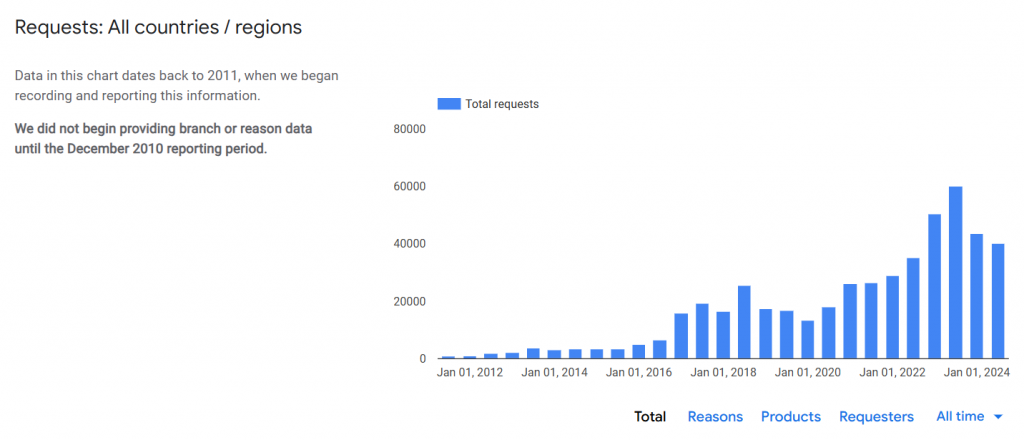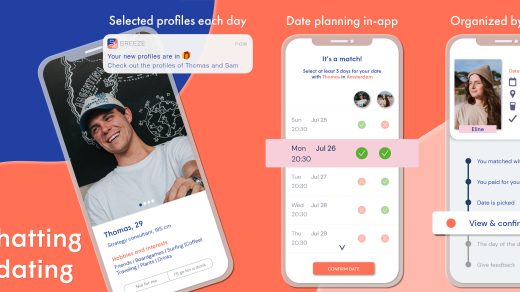In book “World Brain” H. G. Wells proposed the idea of World Brain, much like a big encyclopaedia which would be accessible to the majority of people and help them to get knowledgeable in any desired topic. This concept is very appealing, right? But is it really possible? The OG “Google” would seem like the best representative of the World Brain concept, giving free access to diving right into the bits and pieces of “anything” you want to know. Google is so widely used that it basically controls the global information economy and is responsible for the information relied upon by a huge chunk of the human race. Power dynamics play a critical role in determining who controls this knowledge, influencing not only what information is available but also how it is interpreted and disseminated. So, who controls this knowledge and what can’t we find?
From Garage Project to Global Gatekeeper
Google started as a harmless garage (literally) project in California where two computer scientists Larry Page and Sergey Brin wanted to catalogue and organize mane pages on the internet. With some difficulties Google managed to launch the service and now is leading in search, advertising, and cloud services. Owned by Alphabet Inc. (headquarters are in California, US) is among world’s largest companies with the revenue amounting to over 84.2 billion U.S. dollars only in the second quarter of 2024 (www.statista.com).
In this world – money means power and vice versa, so there is no arguing that Google has a lot of power and control. Its algorithms determine the relevance and visibility of content, often favouring mainstream sources while sidelining local channels and independent creators. Essentially, Google becomes the gatekeeper of knowledge.
Google and Censorship
Censorship presents a critical dimension of knowledge control. While some level of moderation may be necessary to prevent harm, such as hate speech or misinformation, the line between necessary oversight and excessive censorship can be blurred. Who decides what constitutes harmful information? Is it the state? The users?

Google’s 85 page presentation titled “The Good Censor” was leaked and published where it ultimately explained that the companies “are performing a balancing act between two incompatible positions”: from the governments on one side and users on the other (Ethical Google Alternatives: 2023 Update). Although, even if the company is trying to balance it out, damn they are doing a bad job. Following the requests from the governments, Google enables propaganda and lack of information in the global North. Let’s look at more specific topic like Palestine’s fight for self-determination.
When I google “Palestine vs Israel”, the results are from the major news channels like BBC, Reuters, Amnesty Watch and Al Jazeera. The main words I see are conflict and war. However, it is actually neither a conflict nor a war. What israel in Gaza is doing is daylight clear genocide. Though there is no article mentioning word “genocide”, which absence normalizes the “two side” point of view.
The major channels like BBC and Reuters present the history of the “conflict” omitting major parts from the history of Palestine. Most of the story there goes like this: 1. Hamas attacked israel on 7th of October, let’s look at the history; 2. Great Britain controlled Palestine, the majority of people living there were Arab majority and Jewish minority; 3. Balfour declaration (established “national home” in Palestine for jewish people) and tensions between the communities; 4. Land should have been a safe haven for Jews, but Arabs also wanted to live there, so Jewish and Arab militias fought and oopsie doopsie israel just happened (were forced) to commit Nakba; 5. Israel gets the biggest part of the land, Arabs were unhappy so some conflict happened throughout the years between the two and fast forward to Hamas (a terrorist group!!!) which wants a destruction of israel.
I understand that it is impossible to put 100 years of history into a small article which also should be understandable for a person who knows basically nothing about it, but you can not just miss out on the big parts of information. For example, Arab Jews live/d in Palestine, no Palestinian was consulted when it came to Balfour declaration, Gaza strip mainly consists of refugees after Nakba (israel told them it will be a safe space), Hamas came to be because of food/water blockades from israel so much more. Additionally, the problem here does not necessarily lie in the articles themselves (even I leave out some information when writing a blog), but in lack of diversity in Google’s results when you search the topic.
To know all of this information will harm the governments and their plans and probably Google itself, therefore we have to dig deep or buy books to find it. All of this goes against the idea of accessibility of knowledge because parts of it get taken out and the political view/opinion of the majority of people who are just getting to know the topic gets shaped according to what they find on basically the first 5 results on Google.
The Illusion of Objectivity
The control exerted by Google – through its algorithms, censorship practices, and prioritization of mainstream narratives – can obscure crucial historical contexts and perspectives. As users increasingly rely on Google for information, the potential for misinformation and a skewed understanding of complex issues grows. Google is not all-knowing and neutral, and especially we, people who live in the global North, need alternative sources that provide a more comprehensive view of global events. It is very easy and very quick to get “educated” on Google but we can’t rely on one company’s curation of knowledge bits.
Sources:
- Ethical Google Alternatives: 2023 Update
- Statista.com
- Google Transparency Report: Government Requests to Remove Content
- Israel Gaza war: History of the conflict explained
- Workshop by Tabaria cafe: Tools Against Zionism (I believe it was mainly based on a book “Ten Myths About Israel” by Ilan Pappe)
- “World Brain” by H. G. Wells



Good article. I agree, google is basically just a search engine for mainstream BBC, AP, Reuters etc perspective when it comes to search results for global news. It seems like social media is the only place where you can easily find more diversity in perspectives.